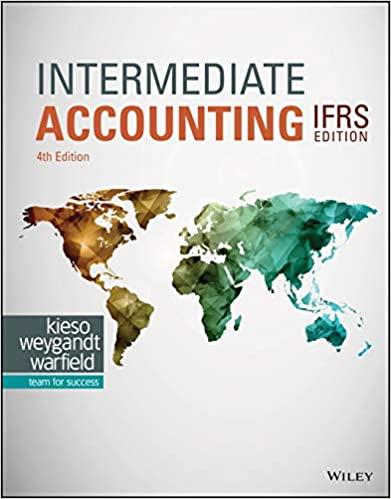Question
Complete business activity and instalment activity statements in Australia Fuel Tax Credits What is a Fuel Tax Credit? Fuel Tax Credits (FTC) provide the taxpayer
Complete business activity and instalment activity statements in Australia
Fuel Tax Credits
What is a Fuel Tax Credit?
Fuel Tax Credits (FTC) provide the taxpayer with a credit for the fuel tax (excise or customs duty) included in the price of fuel used in business activities, machinery, plant, equipment and heavy vehicles. FTCs were introduced on 1 July 2006 and eligibility was expanded.
Who is Eligible for Fuel Tax Credits?
| To participate in the FTC scheme a business must: |
| Be registered for GST. |
| Be undertaking an eligible activity using eligible fuel. |
| Meet environmental criteria for diesel vehicles used on-road (if they were manufactured before 1/1/1996). |
What is Eligible Fuel?
Eligible fuels are taxable because fuel tax (excise or customs duty) is required to be paid on it. Taxpayers who acquired and used the them can claim fuel tax credits for eligible liquid or gaseous fuels.
| Eligible liquid fuels include: |
| Petrol |
| Diesel |
| Kerosene |
| Heating oil |
| Other fuels such as mineral turpentine, white spirit, toluene, some solvents. |
| Eligible gaseous fuels include: |
| Liquefied petroleum gas (LPG) |
| Liquefied natural gas (LNG) |
| Compressed natural gas (CNG). |
The eligibility of each type of fuel used by a taxpayer also depends on how they are used, 1.e. the eligible activities. Each type of activity has a limited range of fuels that are eligible for FCT purposes.
What is Eligible Activity?
Eligible activities for the FTC purposes refer to the acquisition, manufacturing, importation and usage of any eligible fuel in the business's operation. The ATO specifically listed tax treatment details regarding the following usage of eligible fuel:
Fuel tax credits are available for any type of eligible fuels used in heavy vehicles, including heavy emergency vehicles travelling on public roads if the vehicle meets all the following conditions
It is used in carrying on a business
It has a gross vehicle mass (GVM) greater than 4.5 tonnes diesel vehicles acquired before 1 July 2006 can equal 4.5 tonnes.
Heavy diesel vehicles manufactured before 1 January 1996 also need to meet one of the following environmental criteria to be eligible for this type of activity:
Meet Rule 147A of the Australian Vehicle Standards Rules 1999 (the 'DT80 test)
Comply with a maintenance schedule endorsed by the Transport Secretary
| Different FTC rates are applied depending the use of the fuel: |
| For travelling on public roads; or |
| To power the auxiliary equipment of the heavy vehicle. |
| Packaging Liquid Fuels |
Taxpayers can claim fuel tax credits when they package certain eligible fuels in containers of 20 litres of less for use other than in an internal combustion engine.
| Eligible fuels for this type of activity are: |
| Kerosene |
| Mineral turpentine |
| White spirit |
| Liquid aromatic hydrocarbons (such as benzene, toluene, xylene) |
| Another petroleum product as defined in sub-item 10.28 of the Schedule to the Excise Tariff Act 1921 (or its imported equivalent) |
1. When considering Fuel Tax Credits:
a) What are eligible fuels? Provide specific examples.
b) Provide two examples of fuels that are not eligible.
| Eligible Fuels: | |
| Not eligible - example 1: | |
| Not eligible - example 2: |
2. List the three eligibility requirements to participate in the Fuel Tax Credits (FTC) scheme
| 1. | |
| 2. | |
| 3. |
Step by Step Solution
There are 3 Steps involved in it
Step: 1

Get Instant Access to Expert-Tailored Solutions
See step-by-step solutions with expert insights and AI powered tools for academic success
Step: 2

Step: 3

Ace Your Homework with AI
Get the answers you need in no time with our AI-driven, step-by-step assistance
Get Started


